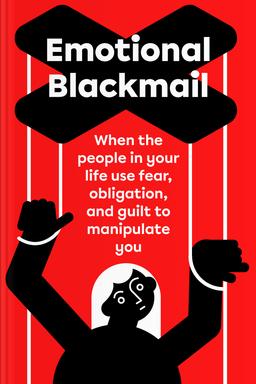Best books on codependency to help you reclaim yourself
Are you continuing to prioritize everyone else's needs while your needs sit in the corner collecting dust? Your relationships feel like constant work, yet somehow you're still afraid they'll fall apart without you? Books about codependency can help you spot these patterns and start untangling them. Whether you're dealing with a controlling partner, people-pleasing at work, or constantly worrying about what others think, there's a book that gets it. Let's find the one that speaks to where you are right now.
Books about codependency that address different relationship struggles
Books about codependency don't all tackle the same issues, and that's actually helpful. Some focus on romantic relationships where you've lost yourself trying to fix someone who doesn't want fixing. Others explore family dynamics where guilt and obligation feel like chains you can't break.
Melody Beattie's 'Codependent No More' became a classic because it speaks to anyone who's exhausted from managing other people's lives. You'll recognize yourself in the stories of people who finally learned to stop rescuing others and start caring for themselves. Jackson MacKenzie's 'Psychopath Free' takes a different angle, helping you recover from relationships with manipulative people who made you doubt your own reality.
For those drowning in family drama, Nedra Glover Tawwab's 'Drama Free' teaches you how to set boundaries without feeling like the villain. Susan Forward's 'Emotional Blackmail' shows you the tactics people use to control you through fear, obligation, and guilt. And if you're someone who keeps choosing unavailable partners, Robin Norwood's 'Women Who Love Too Much' explains why you're drawn to relationships that hurt. These aren't just self-help books. They're mirrors that help you see what you've been too close to notice.
Best books on codependency ranked by what you're struggling with most
The best books on codependency work because they meet you where you actually are, not where you think you should be. If you're just starting to realize something's off in your relationships, Beattie's work gives you the foundation. It names what codependency actually is — that chronic need to control outcomes you can't control, that belief that if you just try harder, things will be different.
But maybe you're past the basics and dealing with someone who twists every conversation. Forward's book on emotional blackmail becomes your decoder ring for understanding manipulation tactics. You'll learn to spot FOG (fear, obligation, guilt) and how to respond without getting sucked back in. MacKenzie's book goes even deeper for those recovering from relationships with people who have no empathy. It's not about diagnosis — it's about healing after someone treated your feelings like they didn't matter.
Tawwab speaks directly to people who grew up in families where saying no was seen as betrayal. Her practical approach helps you set limits without the guilt spiral that usually follows. Norwood's book resonates with women who keep choosing partners who need fixing, showing the childhood roots of why love feels like suffering.




